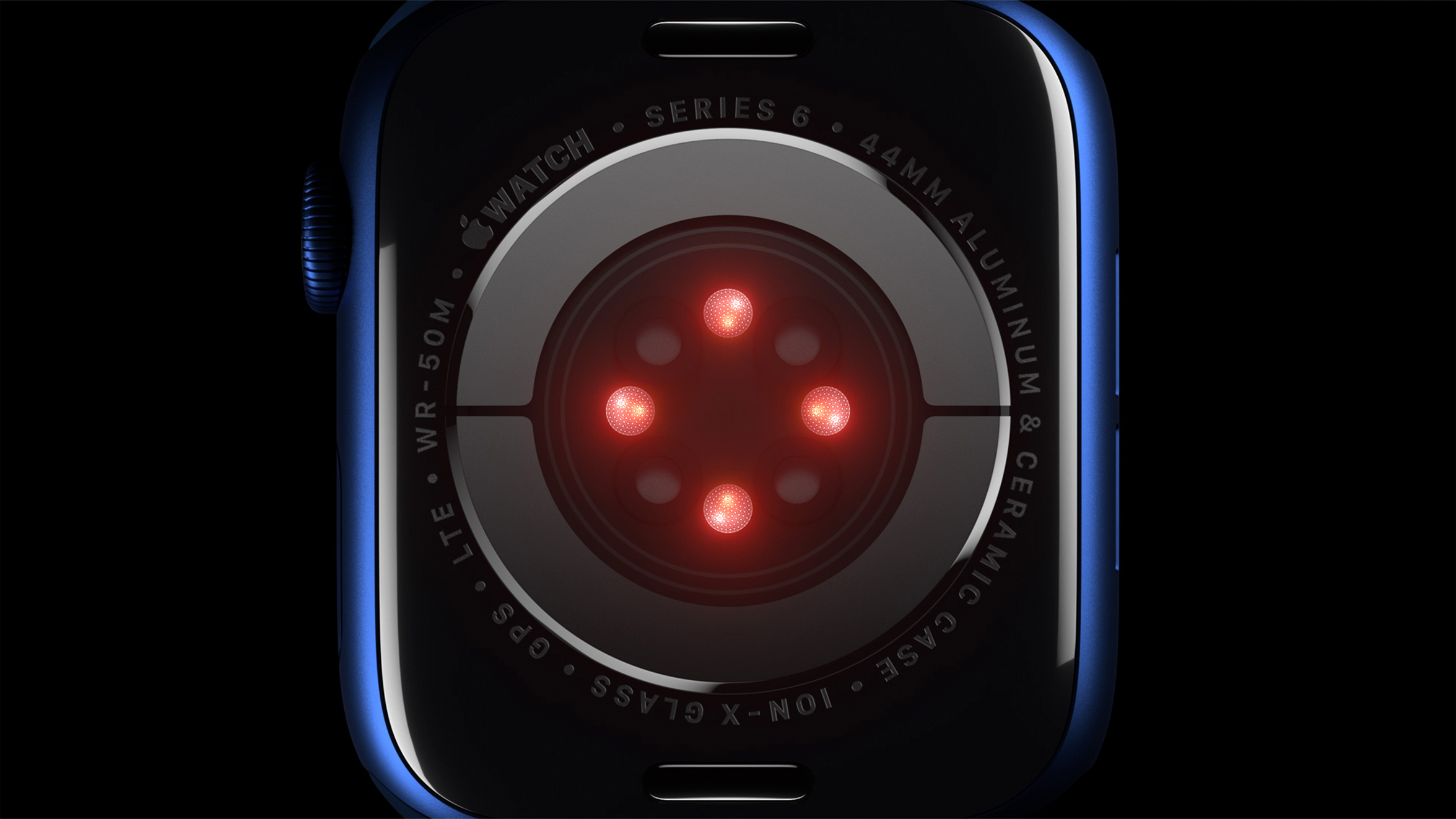

Hands up if you – hang on, I’ve just been told I need to breathe – find Apple Watch – sorry, the music’s too loud, I’ll turn it down – notifications can be a little too – okay! Okay! I’m standing up! – much of a nag. Well, it looks like another notification might be on the horizon.
As MacRumors reports, Apple has been granted a patent for a sensor that can tell how hydrated or dehydrated you are. This could be brilliant for athletes and runners, but it could be quite irritating for the rest of us.
The patent describes how the sensor could be used to provide feedback on hydration levels while you’re working out and to make you more aware of your hydration needs. It does that by measuring how well your sweat conducts electricity: good conductivity can be bad news because it may indicate a high concentration of electrolytes, which can be a sign of inadequate hydration. Using this technique means the Apple Watch can monitor you without requiring “invasive, expensive or unreliable” sensors.
As MacRumors points out, getting a patent doesn’t mean a feature will necessarily make it into production, and perhaps not into the Apple Watch Series 7, which is expect in a matter of weeks. But given Apple’s healthcare ambitions and the apparent simplicity of adding such a sensor, we’d expect this one to end up in the Series 8 perhaps.
Will hydration sensing be a pain in the glass?
Whether hydration monitoring is annoying will depend very much on how Apple implements it. It might be something you only see if you ask for it, for example because you’re a runner and you want that data in your fitness app, or it might only pop up if there’s a major problem in much the same way that the noise notifications currently work. For endurance athletes, it could be really useful and interesting, helping you to maintain performance through better hydration pacing.
Worst-case scenario? It’s rolled out as a regular nag to hydrate, breaking your train of thought or interrupting a nice snooze on the sofa.
There’s also the tinfoil hat scenario, which is: what if the sensor data is misused? Apple is one of the more trustworthy companies when it comes to personal data (and especially health), but when you consider (a) that most of us don’t check the privacy small print when we update our apps and (b) everything Facebook has ever done, the prospect of our vitals being monetised in some way is not as far-fetched as you might wish. As important as hydration is, I don't want a notification offering me a bottle of electrolyte drink delivered from my local shop in six minutes by a gig-economy worker.
Sign up to the T3 newsletter for smarter living straight to your inbox
Get all the latest news, reviews, deals and buying guides on gorgeous tech, home and active products from the T3 experts
Writer, musician and broadcaster Carrie Marshall has been covering technology since 1998 and is particularly interested in how tech can help us live our best lives. Her CV is a who’s who of magazines, newspapers, websites and radio programmes ranging from T3, Techradar and MacFormat to the BBC, Sunday Post and People’s Friend. Carrie has written more than a dozen books, ghost-wrote two more and co-wrote seven more books and a Radio 2 documentary series; her memoir, Carrie Kills A Man, was shortlisted for the British Book Awards. When she’s not scribbling, Carrie is the singer in Glaswegian rock band Unquiet Mind (unquietmindmusic).

